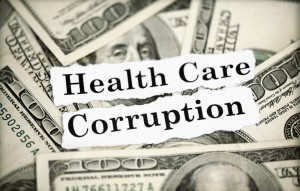
Healthcare is one of our largest expenses.
Each year, the American government pays more than a trillion dollars to hospitals, doctors, laboratories, pharmacies, nursing homes, home health care agencies and medical device providers through Medicare, Medicaid, Tricare and other programs.
These programs allow millions of Americans to get the healthcare they need, but they also provide an opportunity for unscrupulous health care providers to take advantage of the system by deliberately overcharging for healthcare services.
Common Examples of Healthcare and Medical Billing Fraud:
- Duplicate billing: Billing for the same procedure or service multiple times
- Overpayment Fraud: Failing to report and return overpayments
- Upcoding Services: Improperly changing a medical billing code to a code for a more severe diagnosis or a more expensive treatment or misrepresenting the nature of the patient’s illness in order to bill at a higher rate
- Unbundling: Billing separately for services, treatments or tests that are normally provided together at a package rate
- Split billing: Billing as if services and procedures provided during one visit were provided over multiple visits
- Services not rendered: Billing for services, treatments, diagnostic tests, medical devices or medications that were not provided; billing for more units of service than were actually provided to the patient; billing for medications that were returned to the pharmacy; charging full prescription price for a partial prescription
- Lack of Medical Necessity: Prescribing medications, drugs, or treatment that are not a medically necessary for a patient’s condition; Inappropriate hospital admissions
- Kickbacks: Inappropriately prescribing treatment or medications or providing a referral in return for financial or other incentives
- Overcharging: Charging Medicare, Medicaid, or Tricare patients a higher rate than is charged to private providers or at a rate that is higher than allowed by law
- Red-lining: Discouraging treatment or enrollment of patients who have serious illness or are at risk for serious illness
- False-certifications: Knowingly providing substandard care or defective products or services or falsifying records required for participation in the Medicare, Medicaid or Tricare programs
- Inflating cost reports: Over representation of general and administrative costs
- Research grant fraud: Failing to report or misreporting drug research grant information; using grant money for unrelated research; failing to report conflicts of interest relating to research
Healthcare fraud is more than a waste of tax payer money; it is one of the primary reasons for the rise in health care costs. However, the government cannot check every healthcare claim; there are simply too many. Instead, the government relies on whistleblowers.
To learn about the responsibilities and rewards for healthcare whistleblowers, contact Petrelli Law at 800-432-9461.
